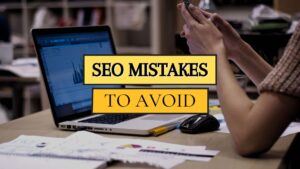Role of Content Marketing in Digital Marketing has quietly become the one thing that doesn’t disappear, even though everything else keeps changing. Digital marketing itself changes all the time — honestly, sometimes way too fast. One day a strategy works, the next day it’s dead. New platforms pop up, algorithms change without warning, and people’s attention spans just keep shrinking. It’s chaotic.
But in the middle of all that mess, content marketing has kind of just… stayed. It didn’t fade out. It didn’t become irrelevant. If anything, it’s doing more work now than it ever did before.
Look around anywhere online and you’ll see it. Blog posts. Reels. YouTube videos. Tweets you skim. LinkedIn posts you pretend to read. Emails you actually open, and a lot you delete without thinking. All of that is content. And all of it plays some role in how digital marketing actually functions day to day.
There’s a stat from the Content Marketing Institute that gets mentioned a lot — businesses with strong content strategies can see conversion rates up to six times higher than businesses that don’t really invest in content. That’s not a tiny improvement. That’s the gap between barely surviving and actually growing.
So yeah, content marketing isn’t optional anymore. Not now, and definitely not if we’re talking about digital marketing heading into 2026.
Let’s break it down without overthinking it.
What Is Content Marketing?
Content marketing is basically about sharing useful information without being annoying.

That’s it.
It’s not about pushing products all the time. It’s not about shouting offers. It’s about creating stuff people actually want to read, watch, or listen to.
That could be a blog explaining something clearly. A video breaking down a confusing topic. A social post that actually says something instead of just promoting a brand. Even a simple checklist or guide.
Good content feels like someone took time to explain things properly. Bad content feels rushed and salesy. Most people can tell the difference in about three seconds.
Think about how you use the internet. When you’re stuck or confused, you Google things. You don’t Google ads. You Google answers. And you click on content.
That’s content marketing. Simple as that.
Role of Content Marketing in Digital Marketing – 2026
Why Does Content Marketing Matter?
Because people are tired of ads.
Seriously. Everyone skips ads. Everyone scrolls past them. Even when ads work, they usually work because they lead to… content.
Content feels less forced. It gives people space to decide. It builds familiarity before asking for anything in return.
From a digital marketing angle, content does a lot of things at once:
- It helps people find your website.
- It gives you something to post on social media.
- It keeps visitors around longer.
- It builds trust before a sales conversation even happens.
Brands that focus on content tend to get better long-term results. There’s another stat that says content-focused companies can see up to 13x higher ROI. Again, not magic. Just human behavior.
People buy from brands they recognize and trust. Content is how that trust gets built online.
Content Marketing: The Backbone of Digital Marketing
Here’s the thing a lot of people miss: content isn’t just part of digital marketing. It holds everything together.
SEO? Needs content.
Social media? Needs content.
Email marketing? Needs content.
Paid ads? Usually send traffic to content.
Without content, most digital marketing channels fall apart.
Let’s go through the main roles content plays.
Also Read: How to Implement E-A-T in Your SEO Strategy (Updated 2026)
1. Boosts SEO
Search engines don’t rank websites because they look nice. They rank them because they answer questions.

And answering questions means content.
Blogs, guides, FAQs, landing pages — all of that gives Google something to work with. There’s a stat that companies with blogs get about 67% more monthly leads than those without blogs. That’s not shocking if you think about it.
More content = more chances to show up in search.
You don’t need to game the system. Just write helpful stuff. Use keywords naturally. Explain things properly. Google’s gotten better at understanding that.
2. Drives Organic Traffic
One of the best parts about content is that it lasts.
You write something today, and if it’s good, it can still bring traffic months or even years later. Ads don’t do that. Once you stop paying, they stop working.
More than half of most websites’ traffic comes from organic search. That means people are actively looking for answers and landing on content.
Evergreen content works especially well. Stuff that doesn’t expire quickly. Tutorials, explanations, guides. Boring maybe, but effective.
3. Builds Trust and Authority
Nobody trusts a brand just because it says “we’re experts.”
People trust brands that explain things clearly and consistently.
If someone keeps seeing your content pop up, keeps finding answers on your site, keeps learning something from you — you start feeling familiar. And familiarity matters.
HubSpot is a classic example. They didn’t grow by selling hard. They grew by teaching. Over time, people just started trusting them.
Sharing real experiences, case studies, and actual results helps too. It shows you’re not just talking theory.
4. Affordable Lead Generation
Content marketing is way cheaper than traditional marketing in the long run.
You might spend time creating an eBook or guide once, but it can generate leads over and over again. There’s a stat that content marketing costs around 62% less than traditional marketing and brings in about three times more leads.
That’s huge, especially for small businesses.
But only if the content is actually useful. Nobody wants to give their email for something generic.
5. Supports All Other Channels
Content makes everything else easier.
One blog post can turn into multiple social posts, an email newsletter, a video script, even ad copy. You’re not constantly starting from scratch.
It also keeps messaging consistent. Everything sounds like it’s coming from the same place, not random ideas thrown together.
How to Build a Winning Content Marketing Strategy
- Most people overcomplicate this part.
- You don’t need a 50-page strategy document. You just need some clarity.
Know Your Audience
- You don’t need fancy personas.
- Just know who you’re talking to. What they struggle with. What confuses them. What questions keep coming up.
- Write like you’re talking to one person, not a crowd.
Set Clear Goals
Not every piece of content needs to sell something.
- Some content brings traffic.
- Some content builds trust.
- Some content converts leads.
Know the purpose before you create it.
Do Keyword Research
Keyword research just tells you what people already care about.
Tools help, but even Google search suggestions are useful. Look for keywords that make sense, not just big numbers.
Create High-Quality Content
- High-quality doesn’t mean perfect.
- It means clear. Honest. Helpful.
- Explain things the way you’d explain them to a real person. If something’s complicated, slow down.
Also Read: How to Use Google Analytics to Improve Your SEO in 2026
Optimize for SEO
Basic SEO still matters.
Titles, headings, meta descriptions, image alt text. Nothing fancy. Just help search engines understand what your content is about.
Promote Your Content
- Posting once isn’t enough.
- Share it. Talk about it again later. Send it through email. Good content deserves more than one shot.
Measure and Improve
Look at what people actually read.
What gets traffic?
What gets ignored?
Where do people leave?
Use that info to improve instead of guessing.
The Future of Content Marketing in 2026
Content marketing isn’t disappearing. It’s just changing shape.

Personalization will matter more.
Short videos will keep dominating attention.
Voice search will change how content is written.
AI will help with speed, not replace humans.
Privacy rules will affect data usage.
Brands that adapt instead of panicking will be fine.
Latest Content Marketing Stats
- More than half of households are expected to own smart speakers by 2026.
Interactive content gets more engagement than static content.
Video is expected to make up over 80% of internet traffic. - These aren’t just trends. They’re signals.
Empower Your Digital Strategy with iWrite India
- Content marketing isn’t a shortcut. It’s not quick. But it works.
- If you focus on creating content that actually helps people, everything else starts working better — SEO, leads, trust, conversions.
- If you want help building content that feels real and not forced, iWrite India can help shape a strategy that actually fits your brand.
FAQs
Why is content marketing important for small businesses?
Because it’s affordable and helps build trust without massive ad spend.
How does content marketing improve SEO?
It answers questions, keeps people engaged, and earns links naturally.
What type of content works best for lead generation?
Guides, webinars, and useful downloads.
How do I measure success?
Traffic, engagement, conversions, and time on page.
Can content marketing work on a small budget?
Yes. Consistency matters more than money.




